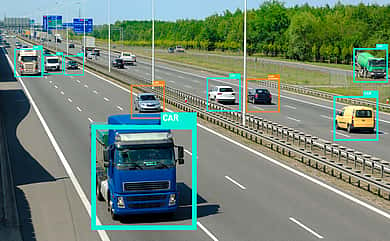When you're doing business, transformation is integral to growth. Technology products and services continue to drive innovation, while COVID-19 has accelerated existing trends and created new business opportunities. In a modern world defined by data and connectivity, intelligent digital solutions are more critical than ever. Digital transformation is about adopting and adapting digital resources to improve business outcomes. Transformative actions require strategic vision, operational focus, and significant investment more than optimisation.
How has COVID-19 shaped the business landscape?
Over recent years, a lot has changed, with COVID-19 presenting challenges to every workplace and industry sector. The global pandemic has shifted the sands for many, from market shifts to supply chain bottlenecks, from remote work to finance opportunities. Although the response has been far from uniform, these challenges have been met with innovation in many sectors.
As the world recovers from COVID-19, smart adoption and integration of digital technology are integral to future growth.
The following impacts have affected everyone:
- Falling revenues - Regardless of size or sector, businesses worldwide have struggled with reduced revenue opportunities and diminished liquidity. Digital transformation can help to collate and ignite new markets.
- Disrupted supply chains - Closed borders and healthcare directives have led to many supply chain problems. Improved logistics through digitisation is part of the solution.
- Remote work arrangements - The global pandemic has accelerated the remote workplace revolution. Digital transformation is the key to remote engagement and value creation.
- Digital normalisation - From Zoom meetings to cloud workspaces, COVID-19 has normalised various digital services. As a result, companies can improve engagement through cloud migration and digital accessibility.
In two years alone, there has been a dramatic decoupling of work and location, an expansive decentralisation of data and digital resources, and a sharp shift towards cloud technologies. These factors are the central tenets of digital transformation, which describes the intentional use of technology to change business processes, solve problems, and create value. Digital transformation includes everything from cloud computing and data analysis to automated chatbots and IT leasing opportunities.
COVID-19 is not over yet, but the recovery phase has started, and it's undeniably digital. While businesses need to overcome significant structural and cultural challenges during this process, innovative funding solutions can help to fuel transformation efforts. At grenke, we help small, medium, and large organisations fund digital transformation. In addition, we offer creative financial solutions for IT equipment and technology services to help inspire growth.
Different types of digital transformation
Funding digital transformation is not a one-size-fits-all situation. Companies require custom long-term solutions and tailored financial arrangements. The amount of money needed depends on the scope and scale of transformation efforts, with digital transformation covering a vast spectrum. For example, businesses may be interested in procedural, business model, market, or cultural transformation.
Finance considerations
The long-term impacts of digital transformation are incredibly positive, but significant challenges must be overcome. It's essential to develop a transformation plan, update relevant processes, and identify and educate stakeholders. From initialisation to completion, finance plays a critical role during this process.
With a digital asset loan from grenke, you can get access to the technology you need in a flexible and easy-to-manage package. Instead of risking a major technology purchase, you can enjoy the benefits of asset leasing. When you have the right tools by your side, you can transform your business from the inside out.
What is asset finance?
Asset finance is used by businesses to get the equipment they need to grow. From straight lease rentals to master lease agreements, this process involves making regular payments for the use of assets over a set time. This type of agreement is often used for digital transformation projects, where equipment is at risk of becoming obsolete. Asset finance is ideal for IT hardware, software, and cloud migration services, along with software development and other digital transformation services.
The grenke advantage.
At grenke, we support businesses with creative finance solutions. We offer fast asset leasing and flexible invoice finance solutions. If you're ready to invest or currently going through a transformation, we will support your freedom. We finance the critical assets you need to grow from computers and servers to software and cloud packages.
For more information or to get started, get in touch with our team today.


